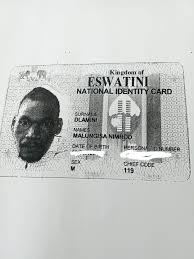Understanding Eswatini: Culture, Progress, and Challenges

Introduction
Eswatini, formerly known as Swaziland, is a small, landlocked nation in Southern Africa, bordered by South Africa and Mozambique. It is known for its rich cultural heritage and picturesque landscapes, but it also faces numerous socio-economic challenges. Understanding Eswatini is vital for grasping the dynamics of the region and the unique position it occupies in the African continent.
The Current State of Eswatini
In recent years, Eswatini has been in the spotlight due to political unrest and calls for democratic reforms. In 2021, widespread protests erupted as citizens demanded greater political freedoms and improved living conditions. The protests were met with government crackdowns, leading to a tense standoff between the monarchy and the populace. As of late 2023, while some international observers note a decrease in violent protests, the political landscape remains unstable, as many citizens feel their voices are still not heard.
Economic Challenges
Eswatini’s economy, heavily reliant on sugar and agriculture, has been significantly affected by global supply chain disruptions and climate changes. The COVID-19 pandemic exacerbated pre-existing economic vulnerabilities, with unemployment rates soaring and many families facing food insecurity. In response to these challenges, the government has been seeking foreign investment and diversifying its economy; however, progress has been slow, with many citizens expressing frustrations over their standard of living.
Cultural Heritage
Despite these challenges, Eswatini boasts a vibrant cultural scene marked by traditional customs, dance, and art. The Reed Dance, an annual ceremony, celebrates purity and the role of women in Swazi culture, gaining both national and international attention. Furthermore, the country is home to beautiful wildlife and national parks, which attract eco-tourism, playing a crucial role in conservation efforts and supporting local economies.
Conclusion
As Eswatini grapples with significant political and economic challenges, it remains a nation rich in culture and history. The response to ongoing protests and calls for reform will be crucial in shaping the country’s future. Observers are hopeful that with continued dialogue and international support, Eswatini can navigate these turbulent times. For readers interested in the development of African nations, Eswatini serves as a poignant case study of resilience and the complexities faced in the pursuit of democracy and sustainability.









